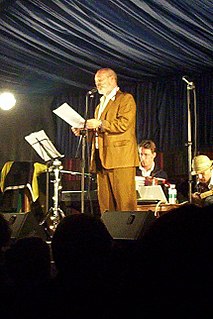A Quote by Jimmy Hoffa
You almost had to live through it to really know the gut ripping misery of the depression during the early thirties which led to labor's bloodiest and most violent days.
Related Quotes
Through much of its history, the US did not have high inequality as compared with Europe. Less so, in fact. That began to change in the industrial age, reaching a peak in 1928, after the forceful destruction of the labor movement and crushing of independent thought. Largely as a result of labor mobilization, inequality declined during the Great Depression, a tendency continuing through the great growth period of regulated capitalism in the early postwar decades.
'Our parents' generation had it a lot tougher than we did. They had to live through the Depression, World War II, and then they had to, you know, try to pick up the pieces of their lives and bring up their children. And, it was a great example for us. I guess we grew up with a certain amount of the ethics our parents had, which is, you know: work hard, make your own way, be independent.
Well, you know, there's depression and depression. What I mean by depression in my own case is that depression isn't just the blues. It's not just like I have a hangover in the weekend ... the girl didn't show up or something like that. It isn't that. It's not really depression, it's a kind of mental violence which stops you from functioning properly from one moment to the next. You lose something somewhere and suddenly you're gripped by a kind of angst of the heart and of the spirit.
The Depression, which started in 1929 was rather mild from 1929 to 1930. And, indeed, in my opinion would have been over in 1931 at the latest had it not been that the Federal Reserve followed a policy which led to bank failures, widespread bank failures, and led to a reduction in the quantity of money.
Led Zeppelin didn't get that kind of Beatles screaming. We had a more sort of macho crowd. But I remember once in the early days of The Yardbirds, we were playing on an ice rink, and the stage was mobbed by screaming girls. I had my clothes torn off me. That's a really uncomfortable experience, let me tell you.
Managers used to say, 'I have a gut feeling.' Do you know what a gut feeling is for a professional manager? It's a pattern that they recognize. But if your system can recognize that pattern, if it's not just a couple of managers who know that pattern, then the system's gut feeling can tell you which way to go. That's really liberating.


































